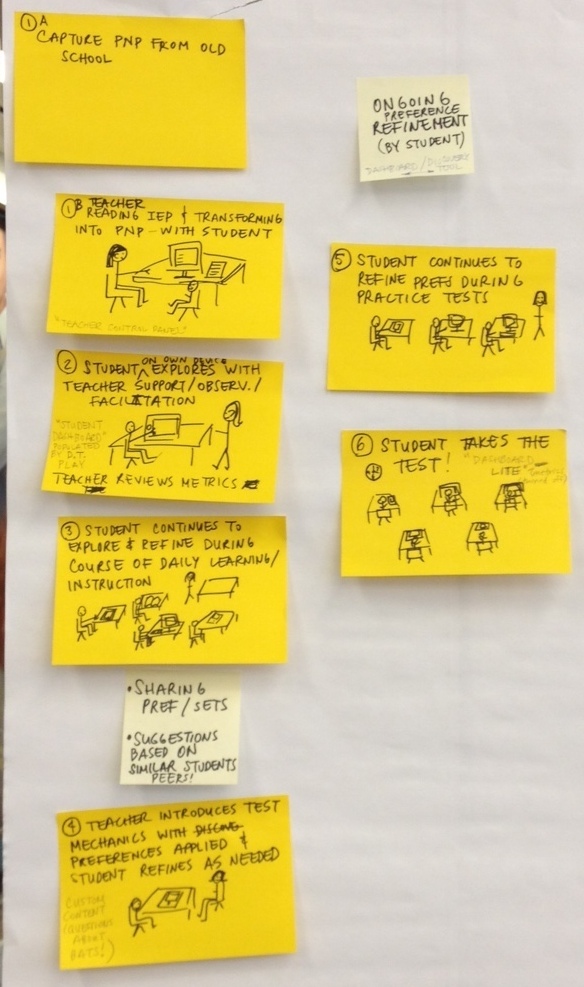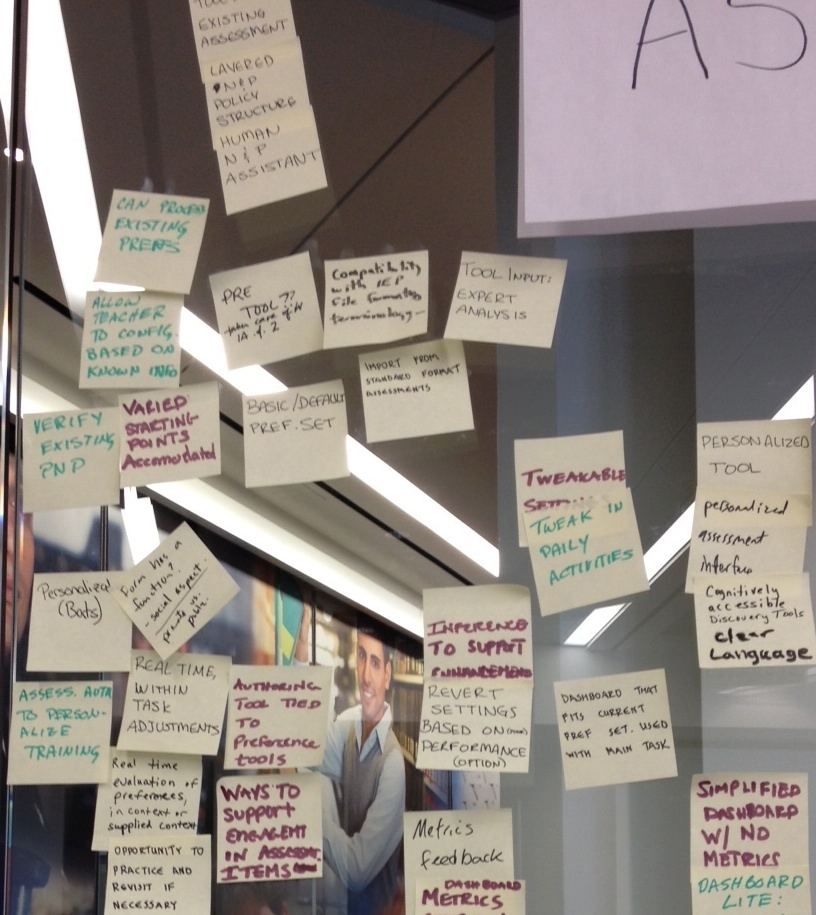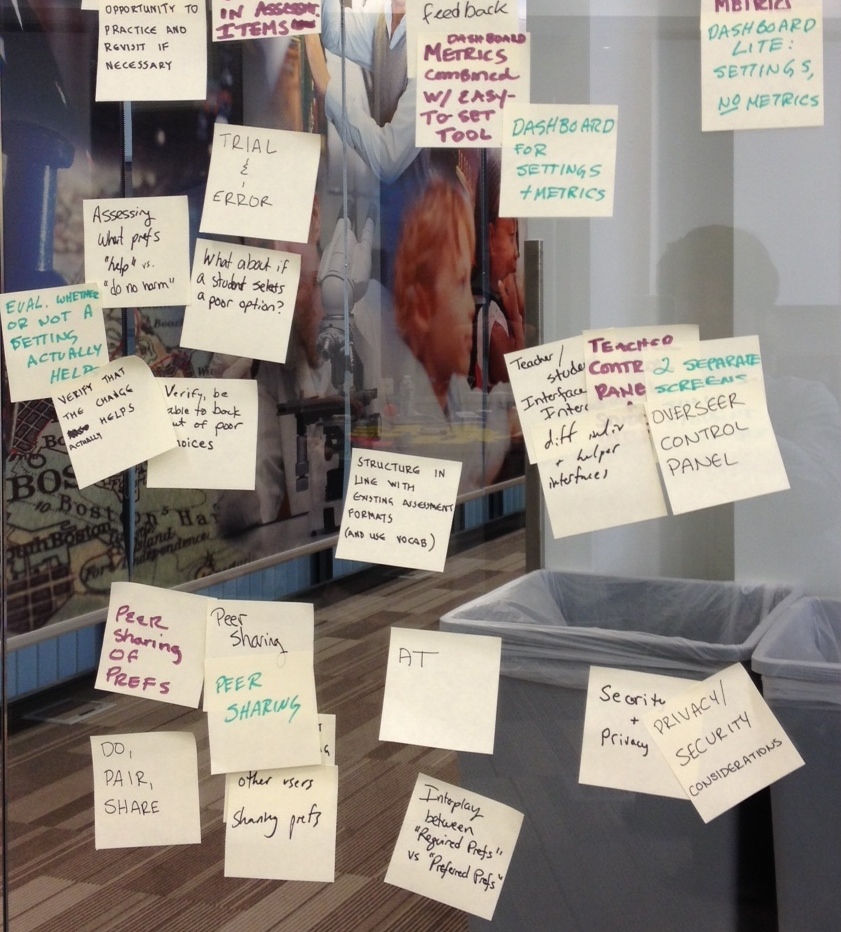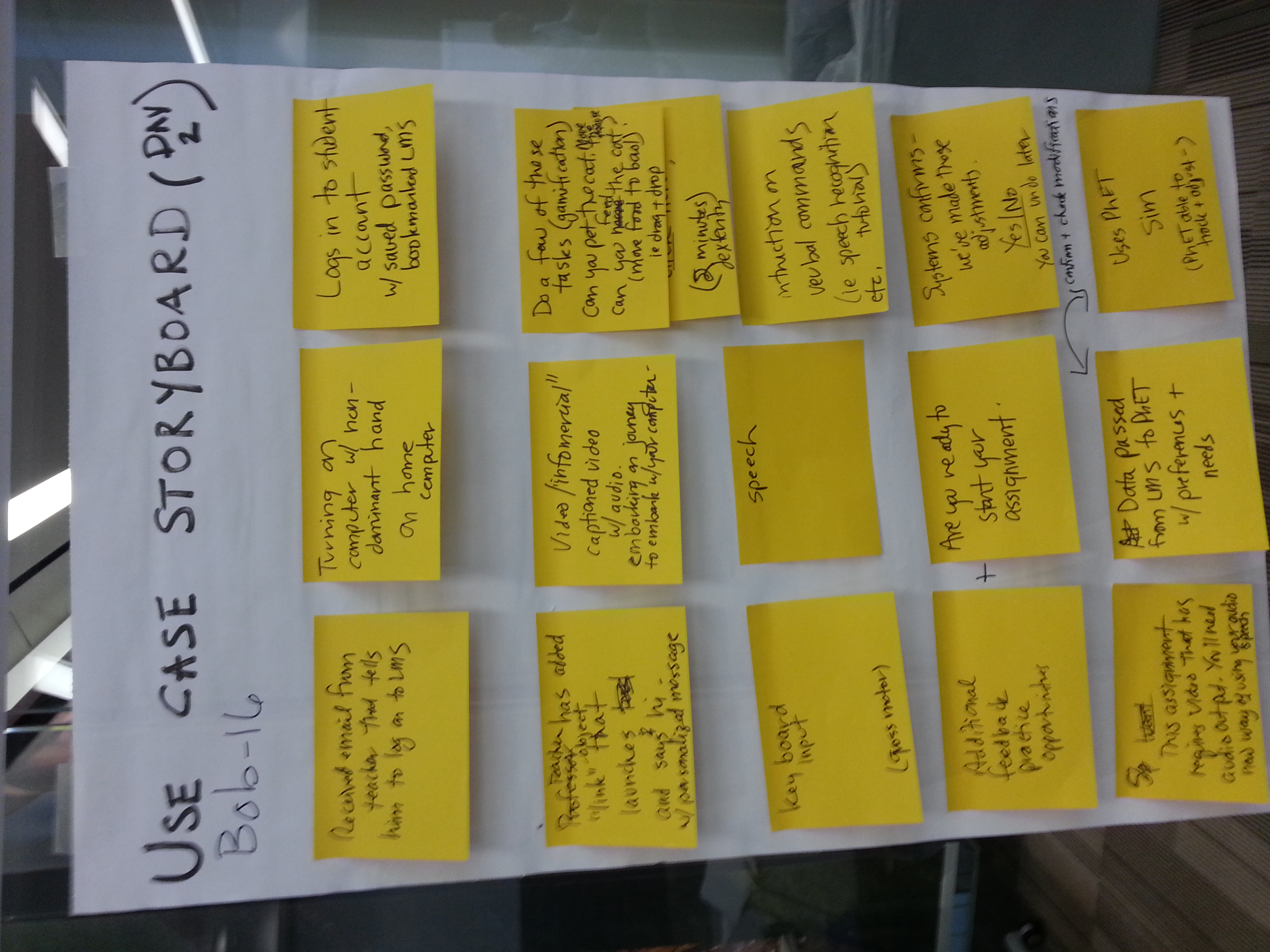(PGA) Use Cases from first Stakeholder Workshop
General
Chris Li
- Female living on the US West Coast
- English is second language
- Quite a social person
- Works 24/7; she's a parent, prioritizes work, but has lots of projects
- Generally works at a computer/tablet/phone (connected)
- Tends to focus hard on whatever she's currently working on, ignoring other things until it's their turn
- Always connected, but only small time for this project
- Needs time to disappear as well; don't expect immediate responses
- Subject matter expert on needs of users with cognitive issues, but also a user of a simplified interface (Has trouble with complex technical interfaces - but not cognitive processing overall)
- Good at explaining complex things in simple terms - once she understands them.
- Good at pointing out complexities in processes, interfaces, and communication
- Can use standard interfaces, but not as productive as if she has a simplified interface, e.g. mobile app instead of web app
- Prefers diagrams and images to dense and overlapping text
- Prefers synchronous brainstorming, spontaneous (not scheduled), voice or face-to-face, but creating a graphical artifact to refer back to
- works best when sharing ideas and perspectives with many people
- works best when hearing other ideas and perspectives synchronously
Accessible Voting
Name: Minjun (pronounced Min-Joon)
Age: 28
Occupation: Home health aid
Interests:
- His parents.
- TV
- Korean singing
Description:
- Has vision loss, including being color blind. As an immigrant, newly naturalized, English is Minjun’s second language.
- Although he can remember who the candidates are from seeing them on TV, he has problems reading their names.
- Comfort level with tech: Functional
- Has not voted before.
Needs & Preferences:
- Color Contrast
- Text size
- Language (Korean) (ability to switch back an forth)
- Audio
Alternatives to discovering what the person needs:
- Discovery at polling place
- Discovery at "kiosk" (non voting system)
- Discovery on voting machine
- Discovery on electronic poll book
- Prescription by voting personnel (may be success or failure)
- Discovery "remotely" (e.g. at home, library computer, assisted living)
Online Educational Assessment
Pat
- 13 years old
- moving foster homes
- transitioning from one school district to another one month prior to end-of-year assessment
- Pat is beginning to feel disengaged from formalized learning
- passionate about bats (Stella Luna was a favourite childhood book)
- episodic mobility needs
- fatigue increases over the course of day
- becomes more difficult for Pat to write, speak and read
- access to technology?
- uses voice recognition, screen reader, alternative pen grip, joystick, adjustable track pad
- transfer to new school means re-training of Pat to use new brand of AT
- needs and preferences?
- wants learning related to passion (bats)
- doesn't want to be identified with disability or special needs
- wants to take test at same time as the rest of the class
- needs to use needs and prefs more (or different ones) as the day goes on
- goal user is trying to accomplish in setting?
- fitting in at school
- learning more about bats
- wants to build a bat house at home
- pass the test!
- goal that educators/system are trying to accomplish?
- get a good score?
- determine where to place Pat
- steps to accomplish
- transfer of needs and preferences from school to school while maintaining Pat's privacy
- accessible assessment to determine knowledge gaps in new school district
- opportunity for Pat to try out AT/preferences outside of class and prior to testing
- Other use cases/considerations
- cognitive needs
- test anxiety
- effort required to negotiate test mechanics outweigh intellectual process
- different life stages (very young student)
- changing landscape of assessment - jumping where the mouse has been, rather than where the mouse is going!
- "adjacent possible"? take long vision and work our way back
- "perimeter passing" ?
Educational Assessment Story-boarding Notes
Community-based Technology Support for Older Citizens
Maude
- 86 years old
- retired teacher
- widow
- lives alone in her own home
- socially isolated
- family lives far away
- no technology experience
- Interests:
- watching TV,
- reading (large print books with a magnifying glass),
- she used to knit and garden and play bingo but these are more difficult now
- watching TV,
- goal:
- she was given an iPad by her family and wants to use it to FaceTime with them. They set up themselves as contacts, and told er to go to the Apple store if she needed help. She doesn't want to do that because it is far away and too much effort. She already has WiFi in her house, installed by her family for their own use when they came to visit.
- she knows her family members share information and photos through Facebook and texts and feels she's missing out
- she might enjoy reading with large fonts on the iPad, but isn't aware that's possible
- she was given an iPad by her family and wants to use it to FaceTime with them. They set up themselves as contacts, and told er to go to the Apple store if she needed help. She doesn't want to do that because it is far away and too much effort. She already has WiFi in her house, installed by her family for their own use when they came to visit.
- steps to accomplish goal:
- Turn on iPad (fiddly because she has arthritis and a mild tremor)
- Swipe the screen (she can't read what's on the screen if the text is not enlarged, but she does have her magnifying glass. She may have trouble swiping.)
- Find and recognize Facetime icon
- Tap the icon (she may have trouble tapping on the icon, double tap, or slip while tapping)
- scan list of contacts on left
- tap on the person
- ringing begins (she might not be able to hear)
- daughter answers
- talk and listen (she might accidentally touch the home button and be unable to see her daughter, or get back to the call, or hang up)
- hang up
- needs and preferences
- very large text
- high volume
- Perhaps also high contrast
- Perhaps also text-to-speech
- Perhaps also tremor filtering
Open Educational Resources (OERs)
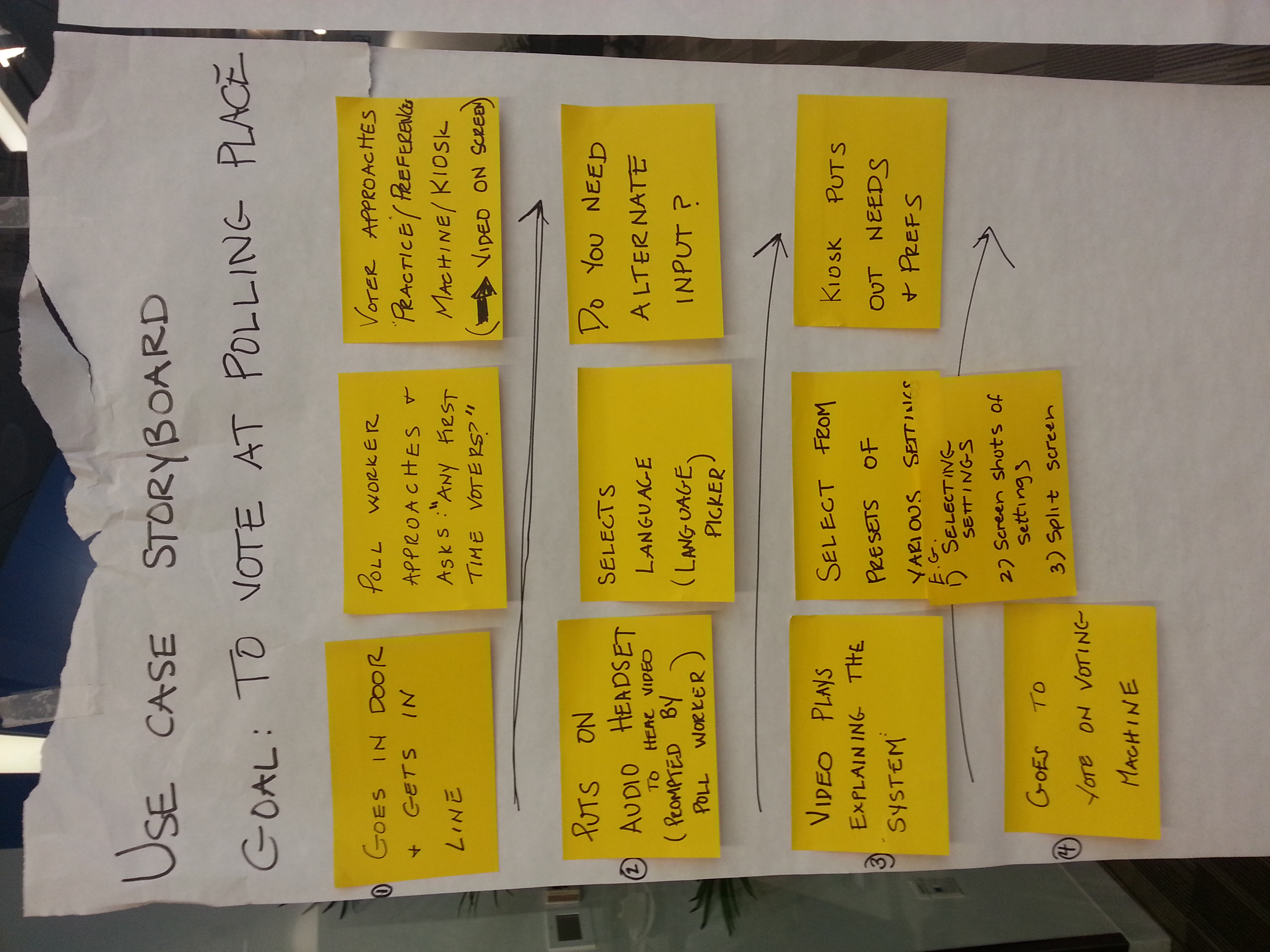
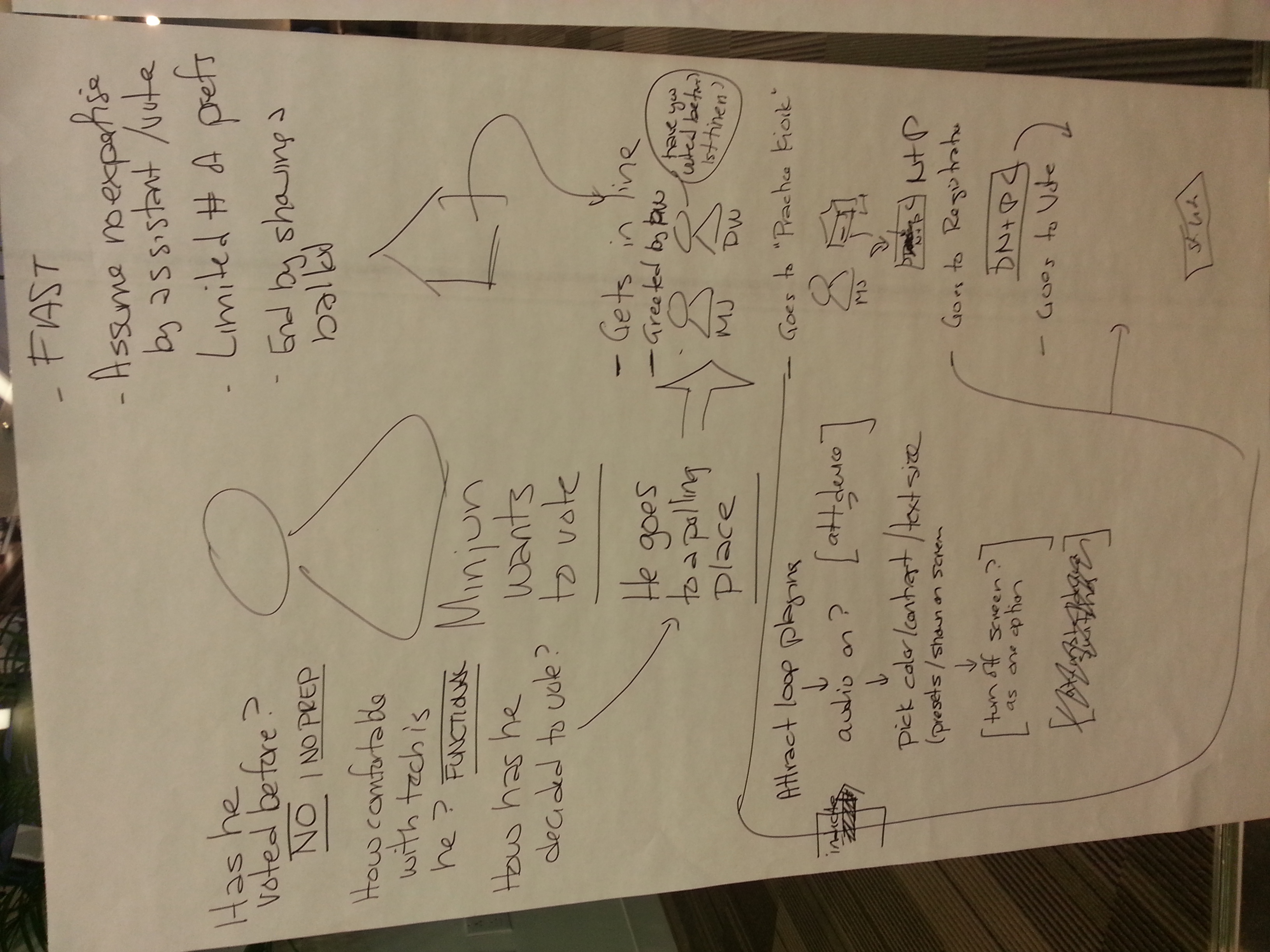
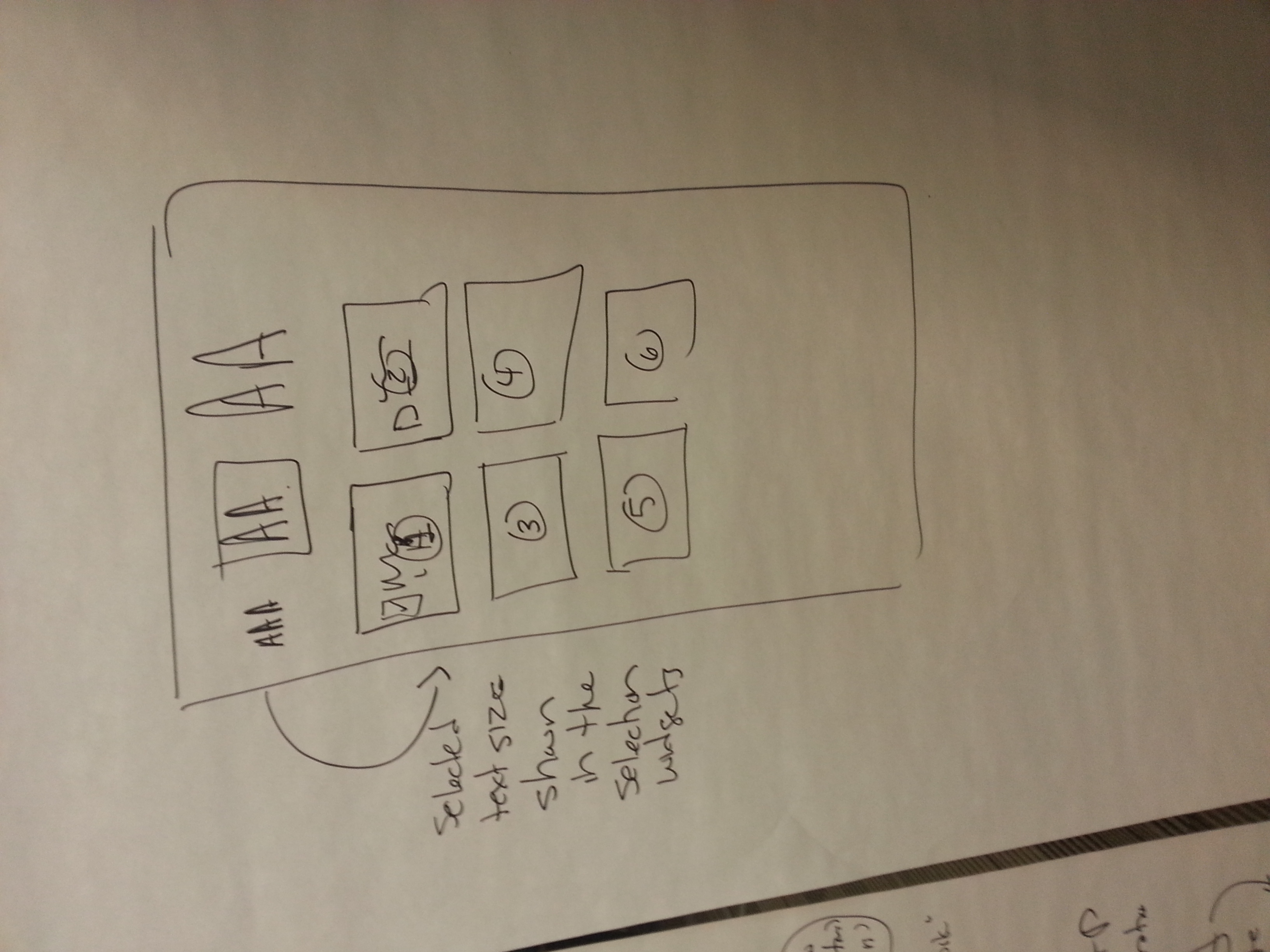
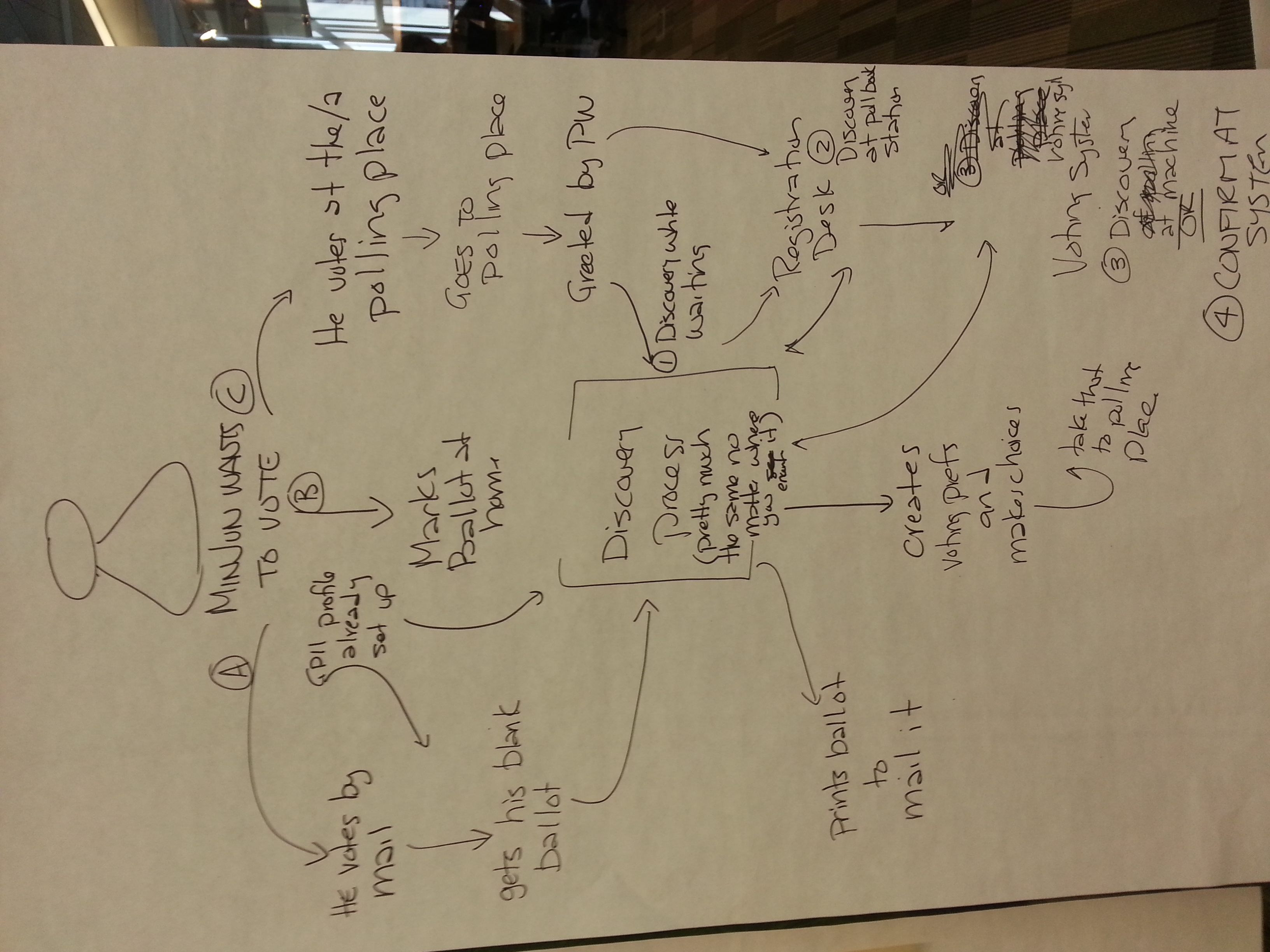
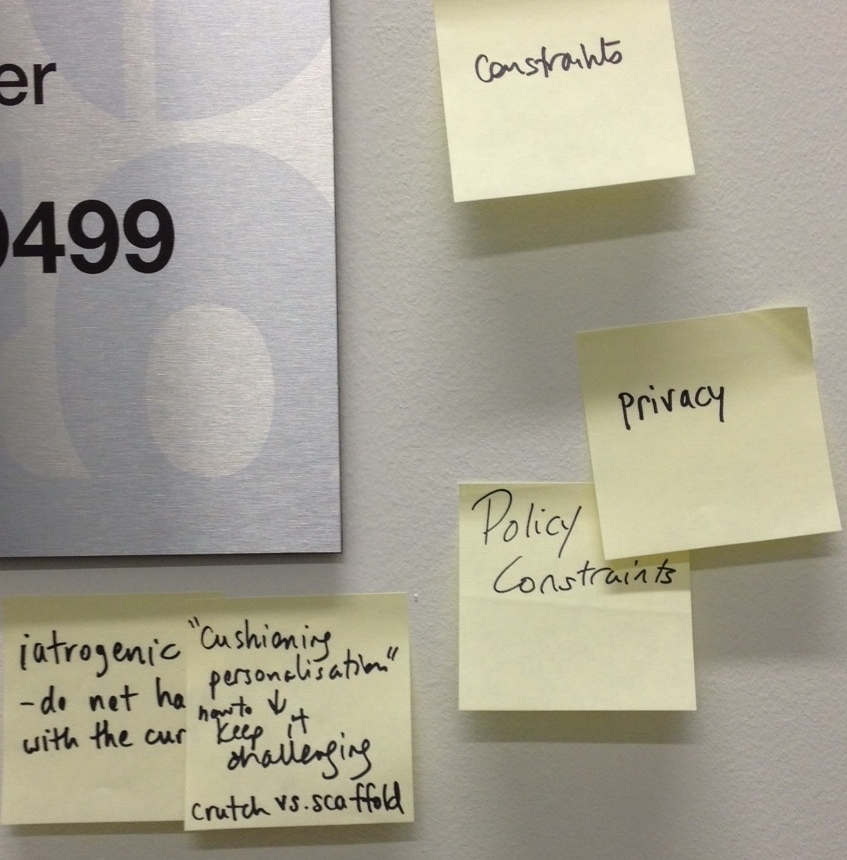
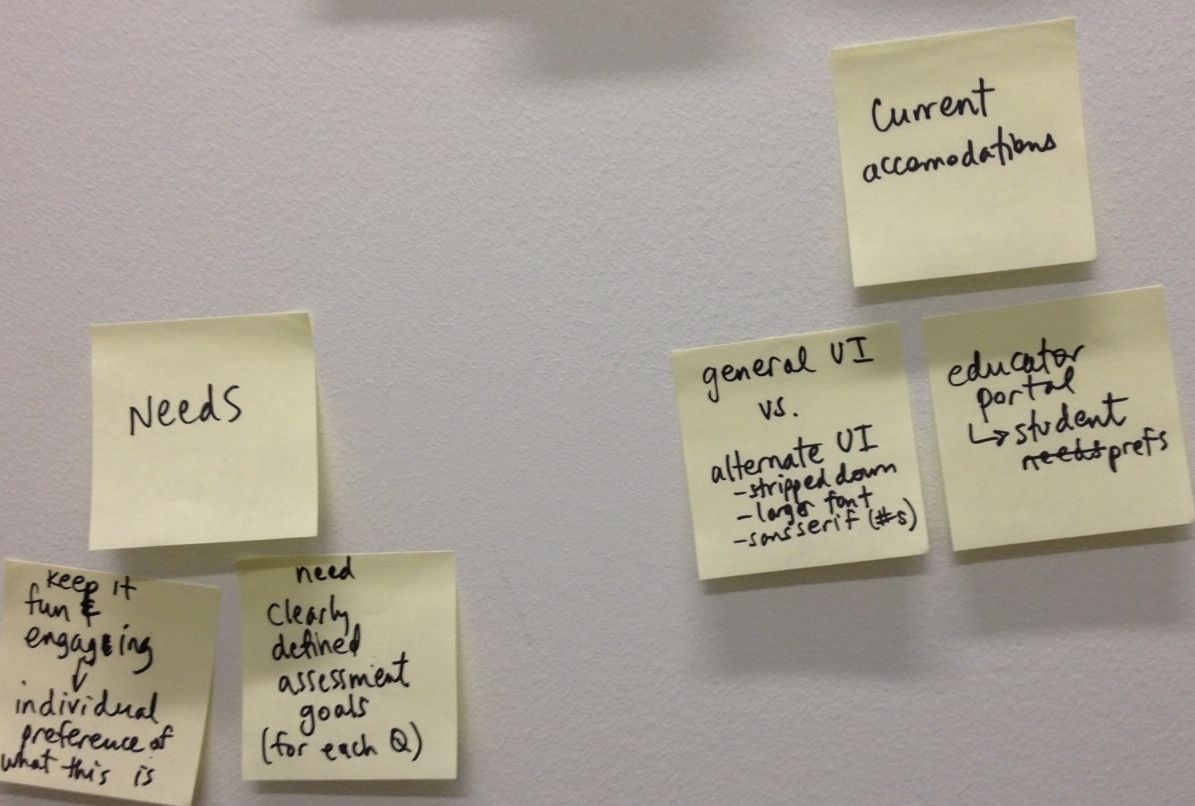
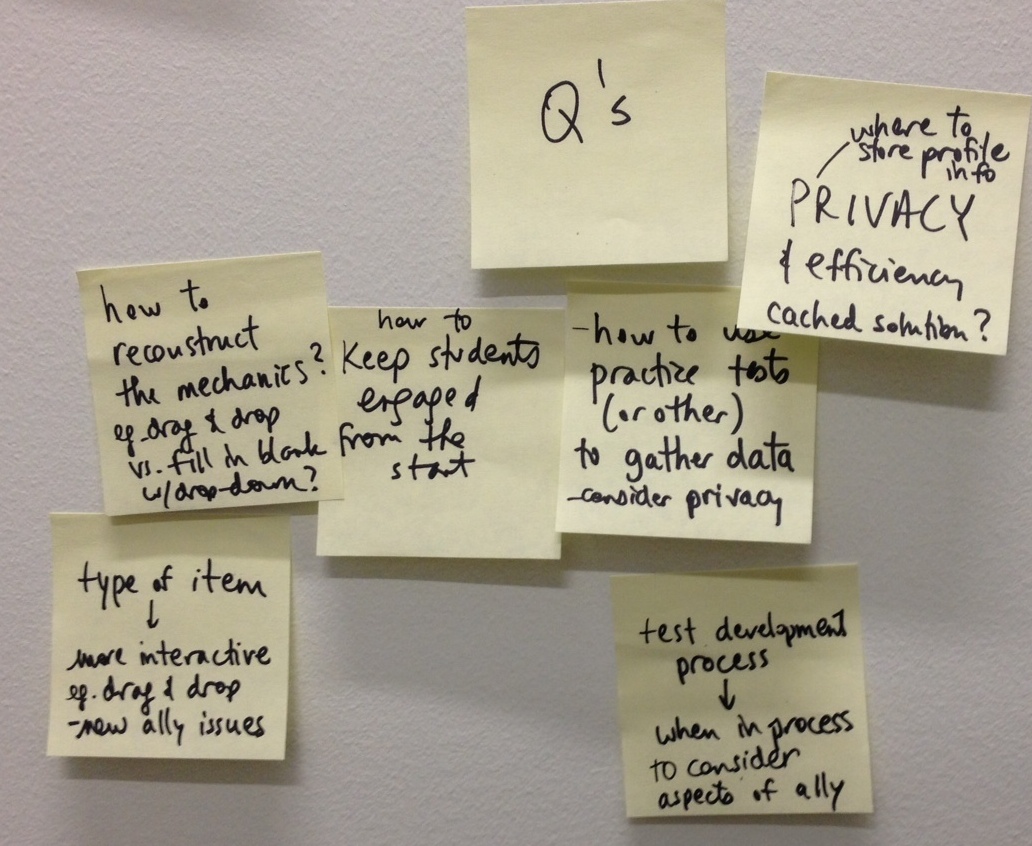
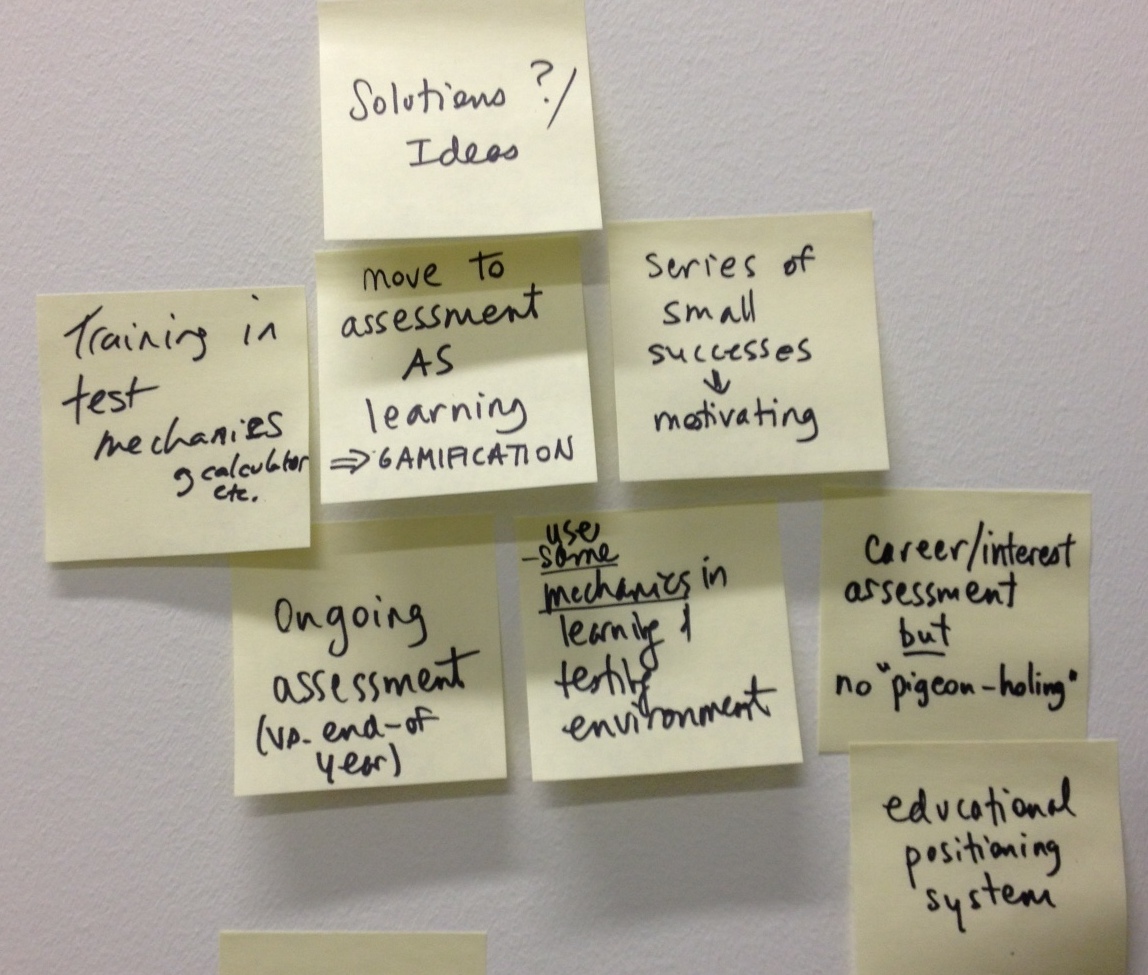
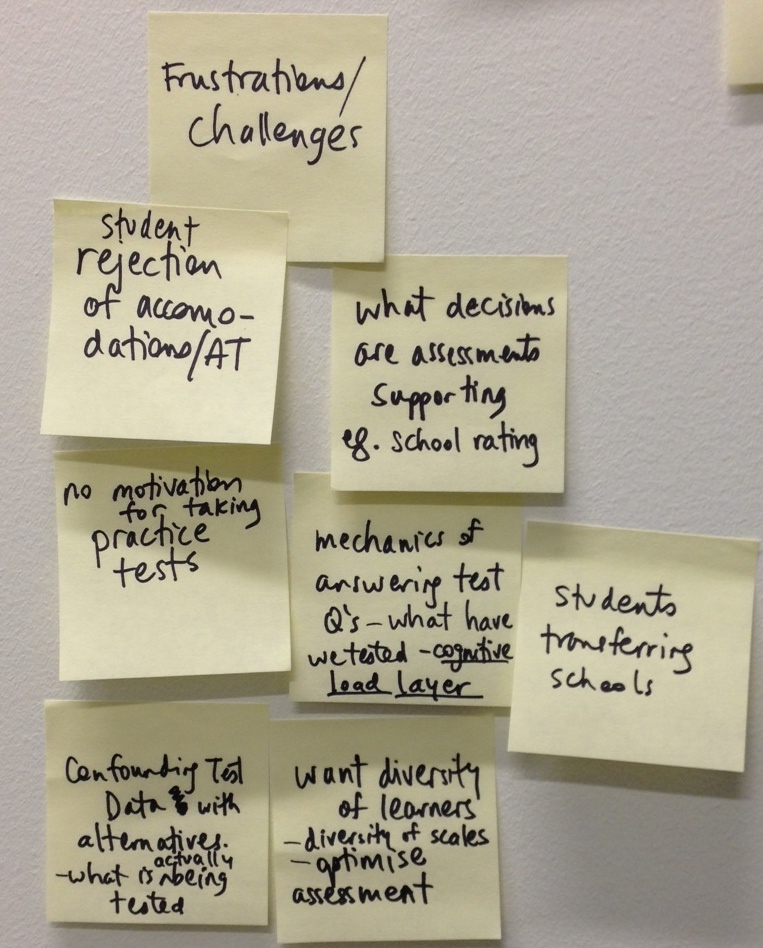
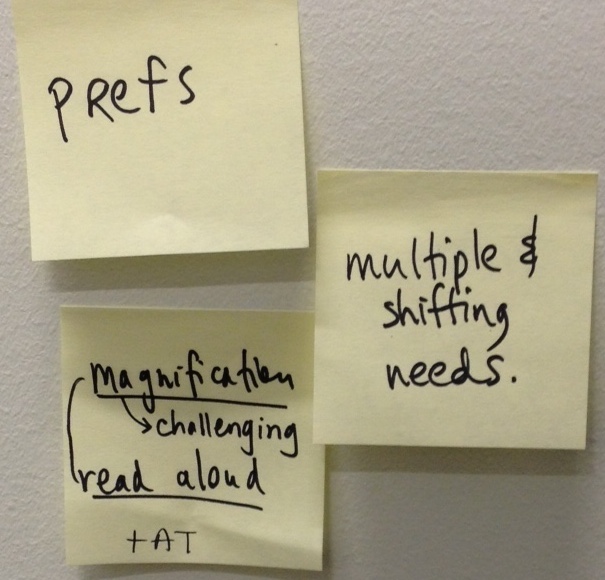
.jpg?version=1&modificationDate=1411654366408&cacheVersion=1&api=v2&width=100&height=69)
